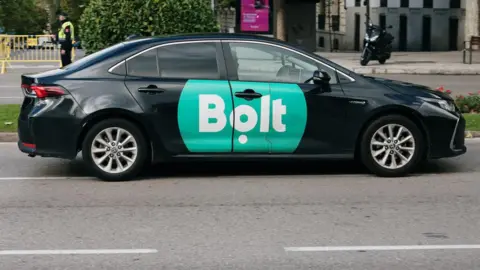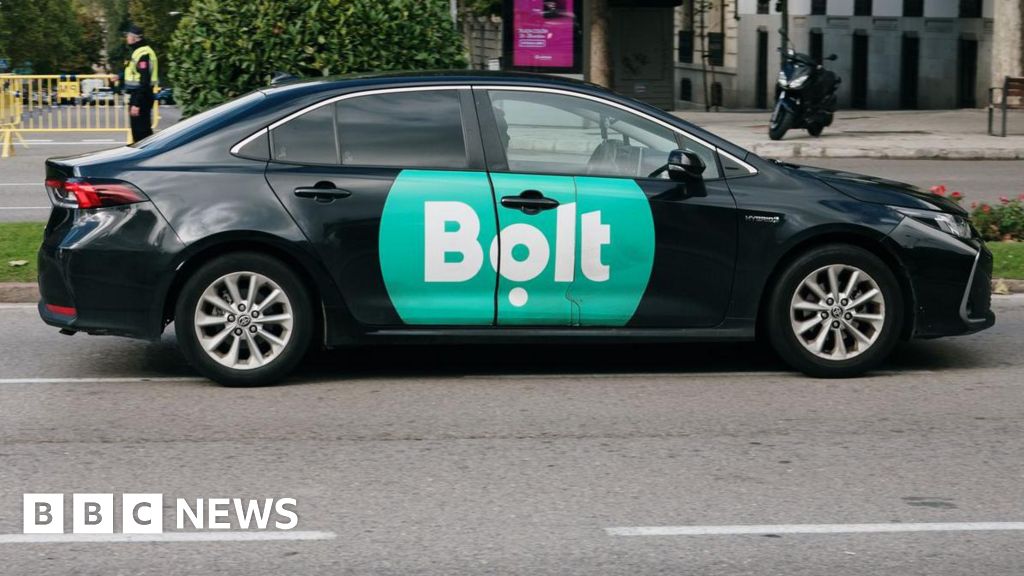 Getty Images
Getty ImagesThousands of drivers working for ride-hailing and food delivery app Bolt have won a legal claim to be classed as workers in the UK rather than self-employed.
The ruling means drivers could be entitled to holiday pay and the minimum wage, which lawyers said could lead to compensation worth more than £200m.
Bolt said it was reviewing its options, including grounds for appeal.
It pointed out that the findings of the Employment Tribunal were confined to drivers who were not on multiple ride-hailing apps.
About 15,000 current and former Bolt drivers took legal action against the Estonian-headquartered firm at a London employment tribunal.
They argued they were formally workers under British law.
Bolt said it had “always supported” the “choice” of drivers “to remain self-employed independent contractors”.
But the tribunal found that “overwhelmingly, the power lies with Bolt”.
“There is nothing in the relationship which demands, or even suggests, agency” on the part of the drivers, it said.
The tribunal added that “the supposed contract between the Bolt driver and the passenger is a fiction designed by Bolt – and in particular its lawyers – to defeat the argument that it has an employer/worker relationship with the driver”.
The ruling is the latest on the “gig-economy”, which is characterised by flexible but unpredictable work patterns.
Leigh Day, the law firm representing the claimants, said the judgment confirmed “gig economy operators cannot continue to falsely classify their workers as independent contractors… to avoid providing the rights those workers are properly entitled to”.
It called on Bolt to compensate its clients “without further delay”.
Leigh Day said the ruling “affects all of the 100,000-plus drivers who take on work through the Bolt private hire hailing app”.
But Bolt said the Employee Tribunal’s findings were limited to drivers who are not “multi-apping”.
The company said nine in 10 Bolt drivers use multiple apps to connect to customers.
The legal case follows a landmark Supreme Court ruling in 2021 that Uber drivers were not self-employed, but were workers entitled to rights including holiday pay, a guaranteed minimum wage and breaks.
The GMB union said the Bolt ruling “goes further than the landmark case against Uber”.
Uber agreed to recognise the GMB in 2021 following the ruling.
The Bolt judgement “raises questions for the industry around waiting time and multi-apping,” said Eamon O’Hearn, GMB national officer.
“We believe workers rights around holidays should be universal and this ruling confirms that fact.”
He added the union would “review the decision closely and engage with the industry to understand the implications for our members”.

